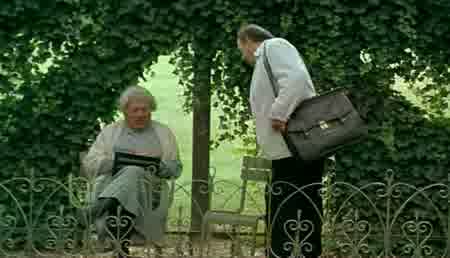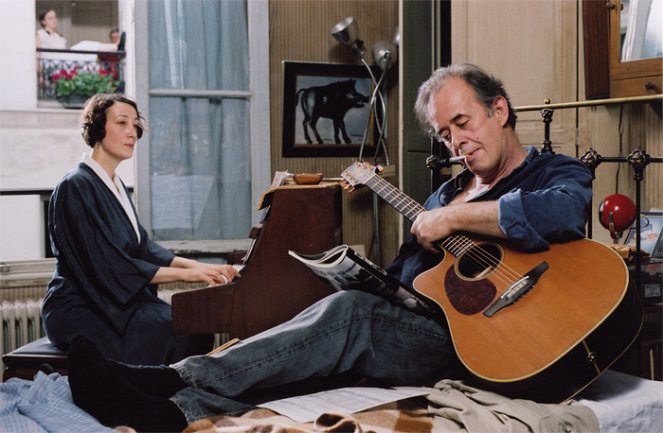Réalisation:
Otar IosselianiScénario:
Otar IosselianiPhotographie:
William LubtchanskyMusique:
Nicholas ZourabichviliActeurs·trices:
Séverin Blanchet, Jacynthe Jacquet, Otar Iosseliani, Lily Lavina, Michel Piccoli, Jean Douchet, Pascal Aubier, Pierre Étaix, Ireneusz Spiewak (plus)Résumés(1)
Vincent est ministre, homme puissant, pas trop laid, plutôt élégant, buveur, mangeur, bon vivant. Odile, sa maîtresse, une très belle fille, est intelligente, lucide, charmante. Ne liez pas votre destin à de trop belles filles mes amis: ça peut vous coûter cher. Dès que Vincent est chassé de son poste, elle le plaque. Théodière, le nouveau ministre, investit le somptueux bureau de Vincent. Il casse tout: il change les étagères, le tissu d'ameublement, le bureau, les fauteuils, jusqu'aux cendriers et aux téléphones. Pour longtemps, qui sait ? Il est optimiste. Par contre, l'ex ministre Vincent commence à vivre... Et si, à la fin de notre histoire, Vincent croise Théodière, son rival et successeur en disgrace à son tour, ce sera sans haine, ni joie perverse: "Tu as l'air fatigué... tiens, bois un coup !". (Les Films du Losange)
(plus)Vidéo (1)
Critiques (1)
The minister, as a member of the political elite, has a simple life and enjoys without hesitation the privileges that his position provides for him - starting with a demanding mistress and ending with a government villa. However, a union demonstration shakes his position to such an extent that resignation seems like a reasonable solution. The minister returns back to his hometown, back to his roots, and to his friends and acquaintances. Paradoxically, he realizes that he feels much better here than in his prestigious position. If anyone thinks that I have just spoiled something, they are mistaken. In the case of Iosseliani's film, it is not about the plot at all, but rather about the style, mood, and poetry. The director uses absurd exaggeration, populates the image with bizarre characters, and employs peculiar humor that will not appeal to everyone. However, I get the feeling that Iosseliani sometimes gets lost in his poetry and loses the key to what he wants to communicate to his viewers. On the other hand, compared to Havel's Leaving, which is somewhat about the same thing, it is in my eyes the unequivocal winner, simply because it is at home in the world of cinema, while Havel couldn't free himself from theatrical thinking. Overall impression: 60%.
()


